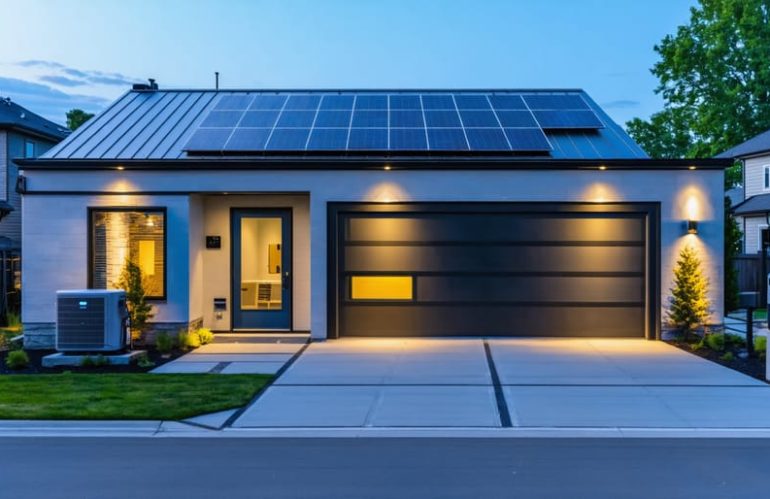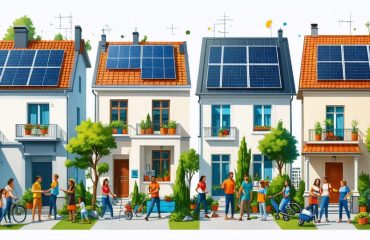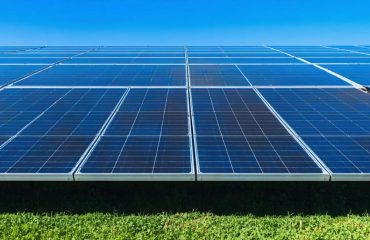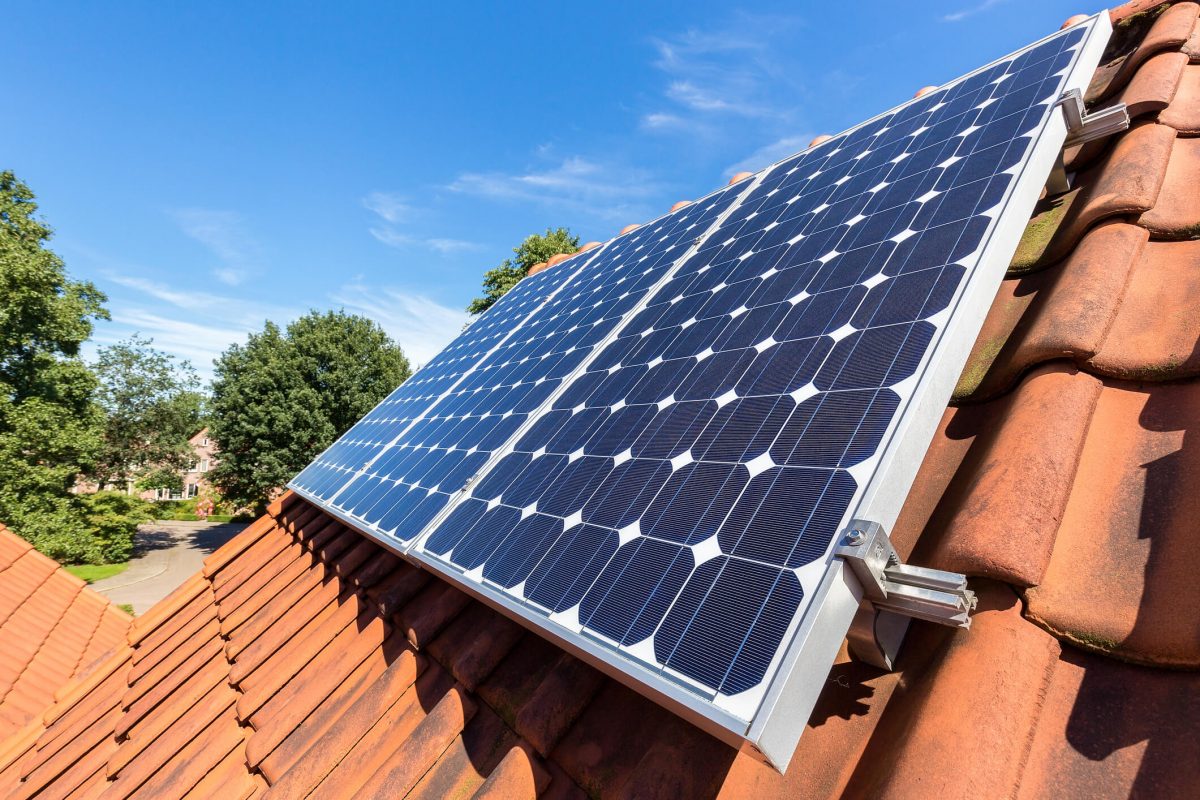Solar power transforms your home into an energy-independent hub while slashing monthly bills and protecting the planet—but those headline benefits only scratch the surface. The real value lies in how solar panels fundamentally change your relationship with electricity: keeping your lights on during grid failures, insulating you from unpredictable rate hikes, and giving you control over one of your largest household expenses.
Despite lingering myths about cost and complexity, modern solar technology has never been more accessible or effective for average homeowners. Today’s systems require minimal maintenance, work efficiently even on cloudy days, and often pay for themselves within years—not decades. Whether you’re motivated by financial savings, environmental responsibility, or simply wanting reliable power when you need it most, solar delivers measurable advantages that extend far beyond the panels on your roof.
Understanding these four core benefits will help you see past outdated assumptions and recognize why millions of homeowners are making the switch to clean, renewable energy that works harder for their families and their futures.
What We Mean by ‘Essential Services’
Before diving into the benefits, let’s clarify what we mean by essential services in your home. These are the daily necessities that keep your household running smoothly and safely—things you genuinely can’t do without in modern living.
Essential services include water heating for showers and dishes, climate control systems that keep your home comfortable year-round, and internet connectivity that’s now crucial for work, school, and staying in touch with loved ones. Your refrigerator preserves food and prevents waste, while medical equipment like CPAP machines, oxygen concentrators, or medication refrigerators can be literally life-saving for family members who depend on them.
Don’t forget emergency systems either—security alarms, lighting for safety, and the ability to charge phones during outages all fall under this umbrella. When the power goes out, you quickly realize how much you rely on these basics.
Understanding solar’s role in essential services means recognizing that reliable electricity isn’t a luxury—it’s fundamental to your family’s comfort, health, and security. Solar power transforms how homeowners approach energy reliability, moving beyond traditional grid dependence to create a more resilient home environment. With this context in mind, let’s explore how solar specifically benefits your access to these vital services.
Benefit #1: Uninterrupted Power During Grid Outages
Picture this: it’s the middle of summer, a storm rolls through your neighborhood, and suddenly the power goes out. Your neighbors scramble for flashlights and worry about spoiling food, but your home? The lights stay on, the refrigerator keeps humming, and life continues as normal. That’s the power of solar energy paired with battery storage.
When you install solar panels with a battery backup system, you’re essentially creating your own mini power plant. During sunny days, your panels generate electricity that powers your home and charges your batteries. When the grid goes down—whether from severe weather, equipment failure, or planned outages—your stored solar energy automatically kicks in to keep essential services running.
This capability becomes especially critical for families with specific needs. If someone in your household relies on medical equipment like oxygen concentrators, CPAP machines, or refrigerated medications, solar backup during emergencies isn’t just convenient—it’s potentially life-saving. You won’t need to worry about finding a generator or rushing to the hospital during a blackout.
Beyond medical needs, solar backup protects your everyday essentials. Your food stays fresh, preventing hundreds of dollars in grocery losses. Your home security system remains active, keeping your family safe. Your phones and laptops stay charged, ensuring you can communicate with loved ones and access emergency information. Your heating or cooling system continues working, maintaining comfortable and safe temperatures regardless of season.
Perhaps most valuable is the peace of mind. While power outages can trigger stress and uncertainty for most households, solar-equipped homes maintain normalcy. Parents don’t worry about entertaining kids in the dark or losing work productivity. There’s no frantic search for ice or battery-powered radios. Instead, your family enjoys continuous comfort and security, turning potential emergencies into minor inconveniences. This reliability transforms how you experience storms and outages—from anxiety-inducing events to barely noticeable blips.
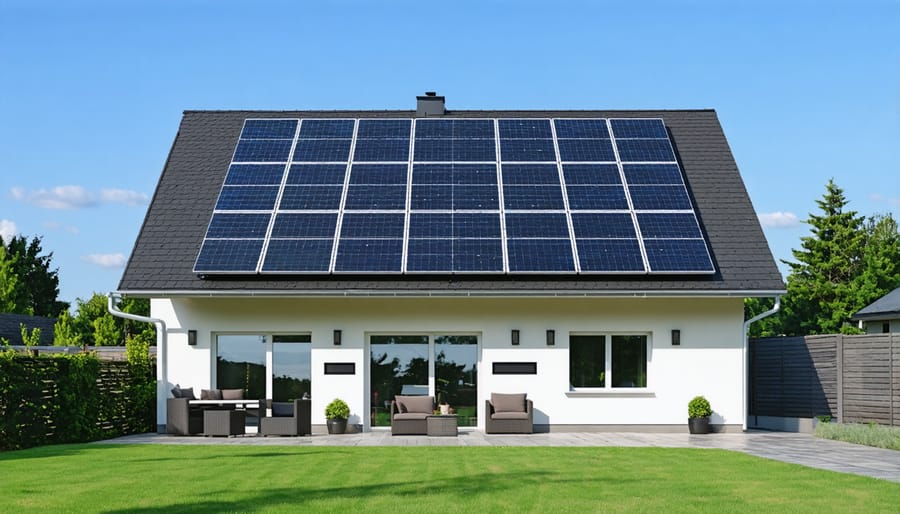
Benefit #2: Lower Energy Costs for Running Your Home
One of the most immediate and tangible benefits of solar power is the dramatic reduction in your monthly energy bills. Once your solar panels are installed, you’re generating free electricity from the sun to power everything in your home—from your air conditioning and heating systems to your water heater, refrigerator, and every light bulb.
Let’s put this into perspective. The average American household spends between $1,500 and $2,500 annually on electricity. With a properly sized solar system, you could reduce this cost by 70-100%, depending on your energy consumption and system capacity. That’s an extra $1,000 to $2,000 back in your pocket every single year. For many families, that’s a vacation fund, college savings contributions, or simply breathing room in a tight budget.
The savings add up quickly over time. Over a typical 25-year lifespan of solar panels, you could save $25,000 to $50,000 or more in energy costs. And when you factor in solar grants and incentives available at federal and state levels, your initial investment pays for itself even faster—often within 6-10 years.
What really makes solar power compelling is protection against rising energy costs. Traditional utility rates typically increase 3-5% annually, but your solar panels continue producing electricity at the same “cost”—essentially free, after your system is paid off. This means your savings actually grow larger each year as utility prices climb.
Consider everyday essentials: running your central air in summer, keeping your home warm in winter, heating water for showers, and powering appliances. These aren’t luxuries you can easily cut back on—they’re necessities. Solar power lets you maintain your comfort and quality of life without the financial stress of watching the meter spin. You’re not sacrificing or constantly worrying about turning off lights; you’re simply using clean energy you’re producing yourself, right from your rooftop.
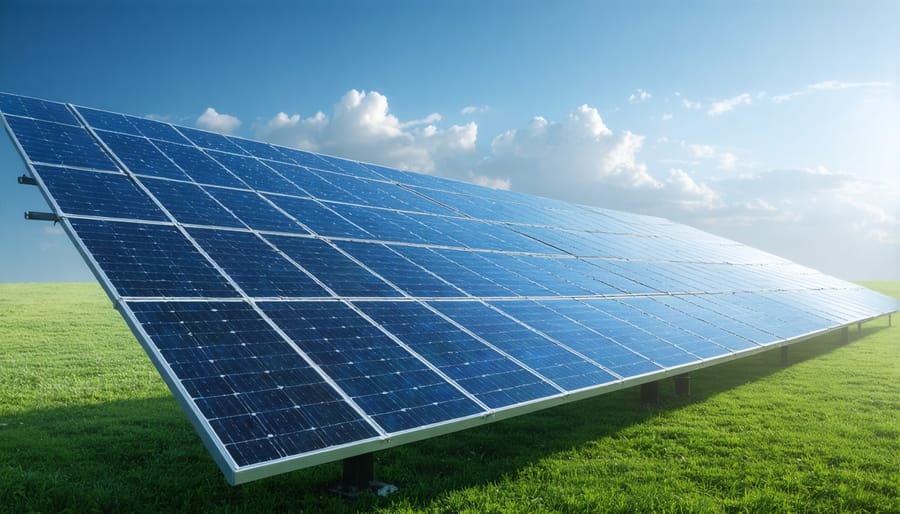
Benefit #3: Energy Independence and Control
One of the most overlooked yet powerful advantages of solar power is the control it gives you over your energy future. When you install solar panels on your home, you’re essentially becoming your own utility provider—a shift that fundamentally changes your relationship with electricity.
Traditional homeowners remain at the mercy of their utility companies, watching helplessly as electricity rates climb year after year. In many regions, energy costs have increased by 15-30% over the past decade, with no signs of slowing down. Solar power shields you from these unpredictable rate hikes. Once your system is installed, the sun’s energy is free, and your cost per kilowatt-hour remains stable for decades.
This independence goes beyond just locking in rates. You gain peace of mind knowing that your home has a reliable power source that isn’t subject to external factors like fuel shortages, infrastructure failures, or corporate pricing decisions. During peak demand periods when utility companies charge premium rates, your panels continue generating electricity at no additional cost.
The empowerment of producing your own clean energy also translates into tangible home value increases. Studies consistently show that homes with solar installations sell faster and command higher prices than comparable homes without solar. Buyers recognize the long-term financial benefits and appreciate the energy independence that comes with the property.
Additionally, many states now offer net metering programs, allowing you to sell excess electricity back to the grid. This means your solar system can actually generate income, not just savings. You’re no longer just a consumer—you’re a producer, with control over how much energy you create and how it’s used.
This level of autonomy represents a fundamental shift in how we think about home ownership and energy consumption, putting the power—literally and figuratively—back in your hands.
Benefit #4: Sustainable Access Without Environmental Compromise
Every time you flip a light switch or charge your phone, you’re making a choice about the environment. With solar power, that choice becomes remarkably simple: you get to enjoy all your modern conveniences while dramatically reducing your carbon footprint. It’s the rare win-win that doesn’t require sacrifice.
Traditional electricity generation releases harmful pollutants and greenhouse gases into the atmosphere. Even if you can’t see it happening, every kilowatt-hour from the grid typically involves burning fossil fuels somewhere. Solar panels, by contrast, generate clean electricity with zero emissions during operation. Your home becomes part of the solution rather than part of the problem.
What makes this benefit particularly meaningful is that you don’t have to choose between comfort and responsibility. Your air conditioning still cools your home on hot days. Your refrigerator keeps food fresh. Your devices stay charged. The difference is that you’re powering these solar as an essential service essentials using energy from the sun rather than from coal plants or natural gas facilities.
The environmental impact adds up quickly. A typical residential solar system offsets the equivalent of planting about 100 trees every year. Over its lifetime, one system can prevent tens of thousands of pounds of carbon dioxide from entering the atmosphere. That’s the environmental equivalent of taking multiple cars off the road—achieved simply by installing panels on your roof.
This isn’t about returning to a pre-electric lifestyle or making major sacrifices. It’s about accessing the power you need in a way that protects the planet for future generations. You maintain your quality of life while actively contributing to cleaner air and a more stable climate.
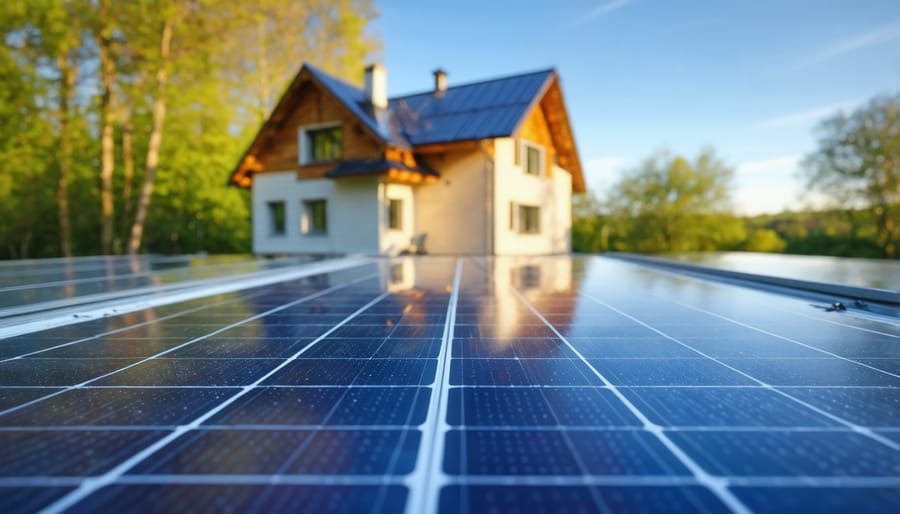
Making Solar Work for Your Essential Services
Getting solar power to work seamlessly for your home’s essential services requires thoughtful planning rather than guesswork. The good news? You don’t need to be an engineer to make smart decisions about your system.
Start by understanding your actual energy needs. An energy audit—which many solar installers offer as part of their consultation—helps identify which appliances and services consume the most power in your home. You might be surprised to learn that your refrigerator, heating and cooling systems, and water heater typically account for the bulk of your energy use. Knowing these numbers helps you size your system appropriately without overspending on unnecessary capacity.
Battery storage deserves special attention when planning your installation. While solar panels generate electricity during daylight hours, batteries store excess energy for nighttime use or power outages. For homeowners prioritizing uninterrupted essential services, investing in battery backup means your refrigerator keeps running, medical equipment stays powered, and security systems remain operational even when the grid goes down. Modern battery systems have become more affordable and efficient, making this once-luxury feature increasingly accessible.
When evaluating your options, consider your home’s roof orientation, available space, and local climate patterns. South-facing roofs typically capture the most sunlight, but east and west orientations can also work effectively. Shade from trees or neighboring buildings matters too, though it’s not always a deal-breaker with proper system design.
Professional consultation helps translate these factors into a customized plan that matches your household’s specific needs and budget. The right installer will ask about your energy goals, explain realistic expectations, and design a system that delivers reliable power for what matters most in your home—without pushing unnecessary upgrades or creating unrealistic promises about performance.
Solar power delivers far more than just electricity—it transforms how you experience comfort, security, and peace of mind in your home. From keeping your lights on during outages to dramatically reducing monthly bills, solar panels provide reliable access to the essential services that modern families depend on every day. The financial savings, energy independence, environmental impact, and grid reliability you gain make solar an investment in your home’s long-term resilience and efficiency.
The good news? Solar technology has never been more accessible or affordable. Today’s systems are designed with homeowners in mind, offering straightforward installation, intuitive monitoring, and proven performance. Whether you’re motivated by cost savings, environmental responsibility, or simply wanting backup power when you need it most, solar delivers tangible benefits that improve your daily life.
Ready to explore how solar can work for your home? Start by assessing your current energy usage and researching local incentives that can significantly reduce installation costs. The path to a more sustainable, self-sufficient home begins with understanding your options and taking that first step toward energy independence.

